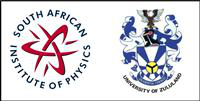Speaker
Level for award<br> (Hons, MSc, <br> PhD)?
PhD
Apply to be<br> considered for a student <br> award (Yes / No)?
Yes
Abstract content <br> (Max 300 words)
The establishment of printing technologies, using nanoparticle based inks, promises inexpensive manufacture of electronic devices. However, to produce working devices, nanoparticles have to meet requirements on size, shape, and composition. In the application of silicon nanoparticles in electronics, it is important that a network of interconnecting particles is formed through which charge transport can take place. Of further importance is that there is an absence of surface oxide in order to maintain a direct silicon-silicon connection within the network. In this work, cheap and scalable production of silicon nanoparticles is achieved efficiently with a top-down process of mechanical attrition by high energy milling. Scanning electron microscopy studies reveal that silicon nanoparticles produced by this method have a range of shapes and sizes. Compositional studies using energy dispersive X-ray spectroscopy (EDX) and X-ray photoemission spectroscopy (XPS) reveal the impurities present in the milled silicon nanoparticles and their surface properties. Transmission electron microscopy (TEM) reveals a polycrystalline structure with a grain size of about 10 nm. The TEM micrographs do not show any presence of a thick oxygen layer, but a thin disordered layer less than 1 nm. The analysis of the high energy milled silicon nanoparticles reveals that the oxygen contamination during the milling process is low and that the termination of the dangling bonds by oxygen passivates the surface against complete oxidation leading to the formation of stable nanoparticles. These particles are not insulating, but allow charge transport through the surface making them ideal for producing semiconducting nanocomposites particularly for printed electronics.
Main supervisor (name and email)<br>and his / her institution
Prof. D.T. Britton
david.britton@myuct.ac.za
University of Cape Town
Would you like to <br> submit a short paper <br> for the Conference <br> Proceedings (Yes / No)?
No

